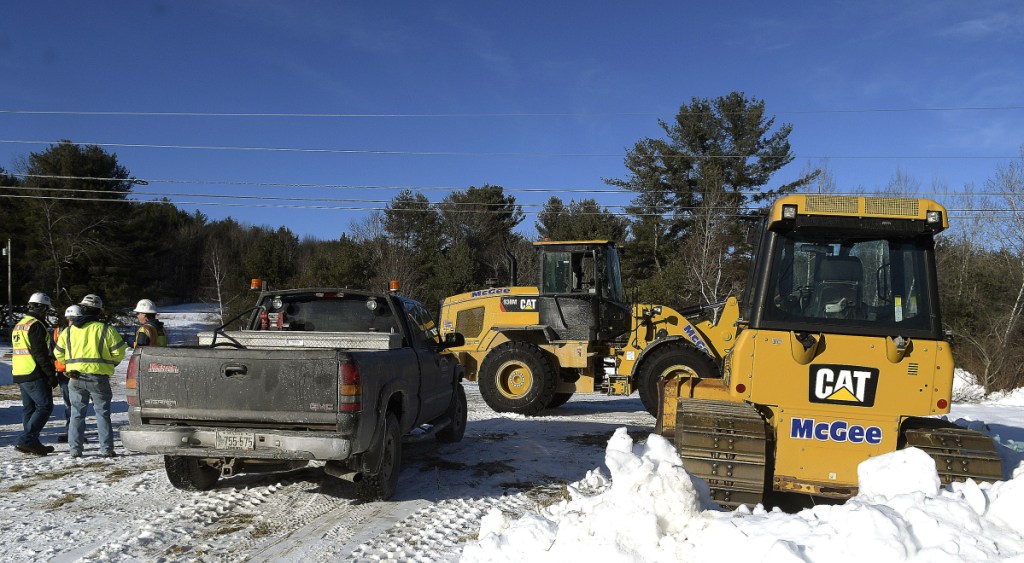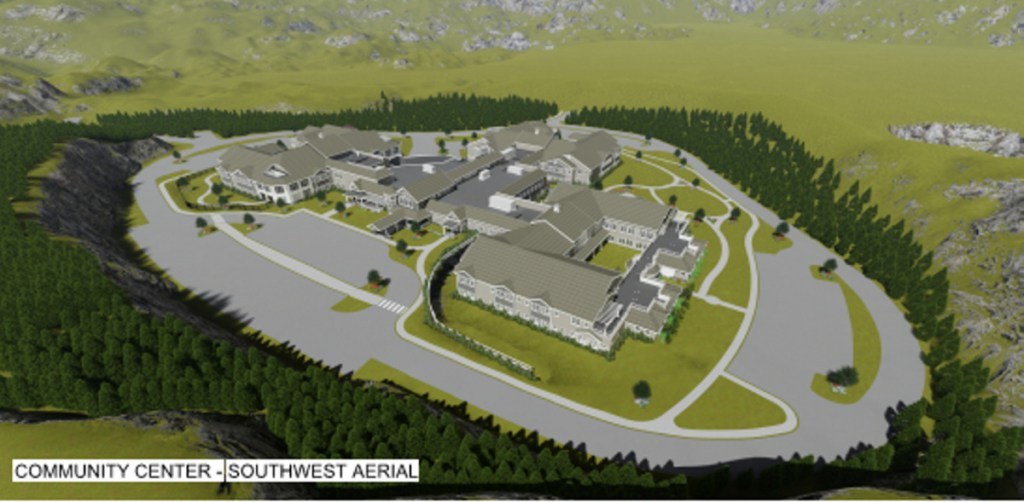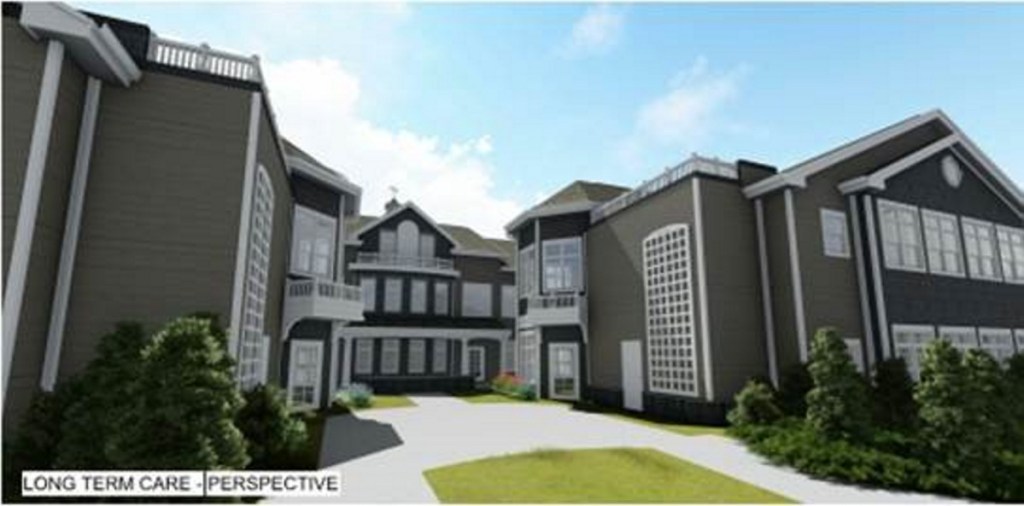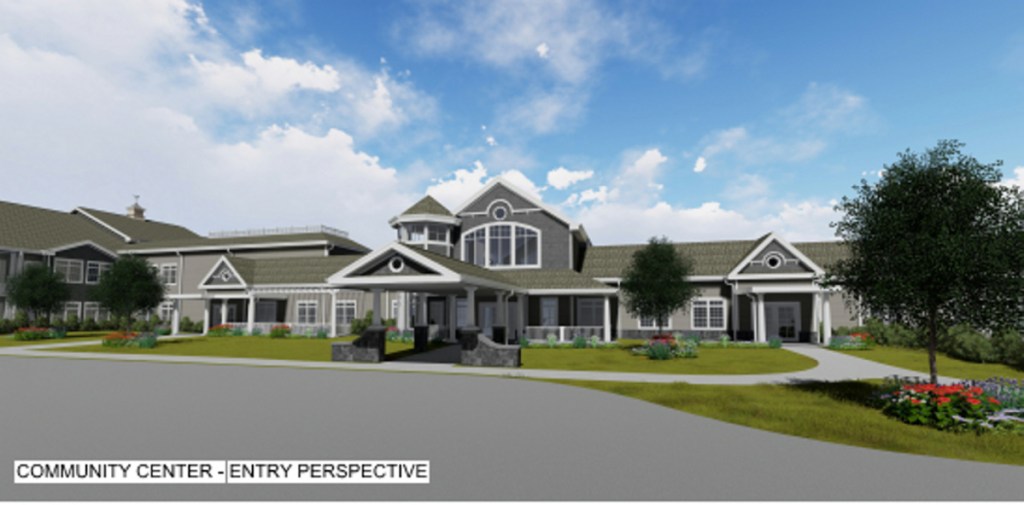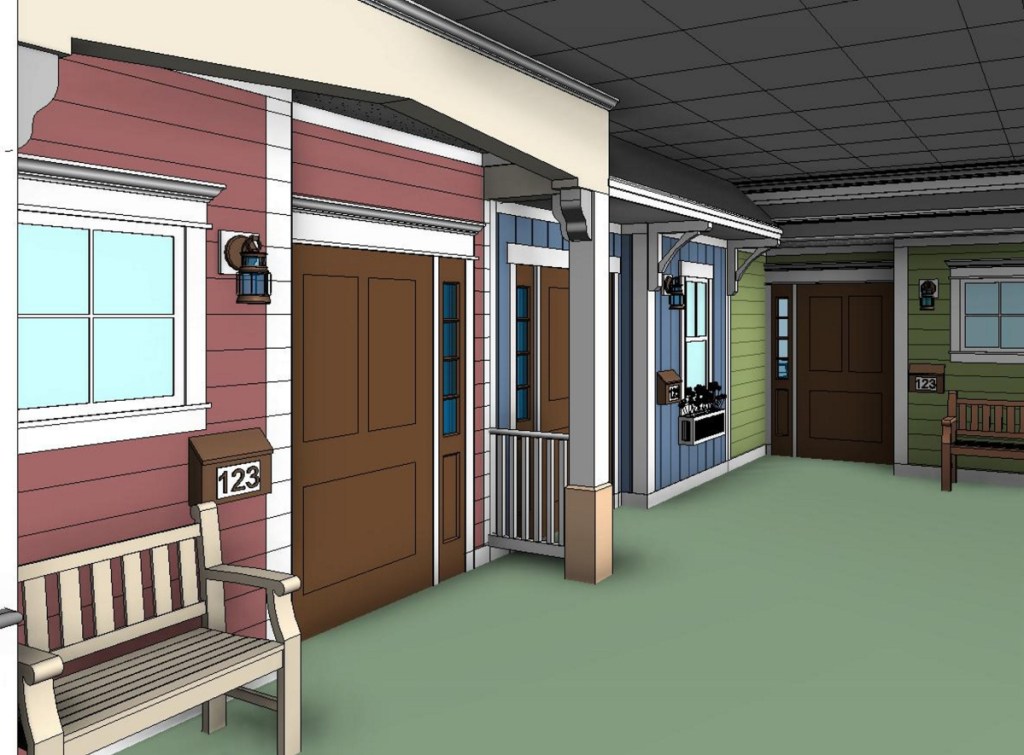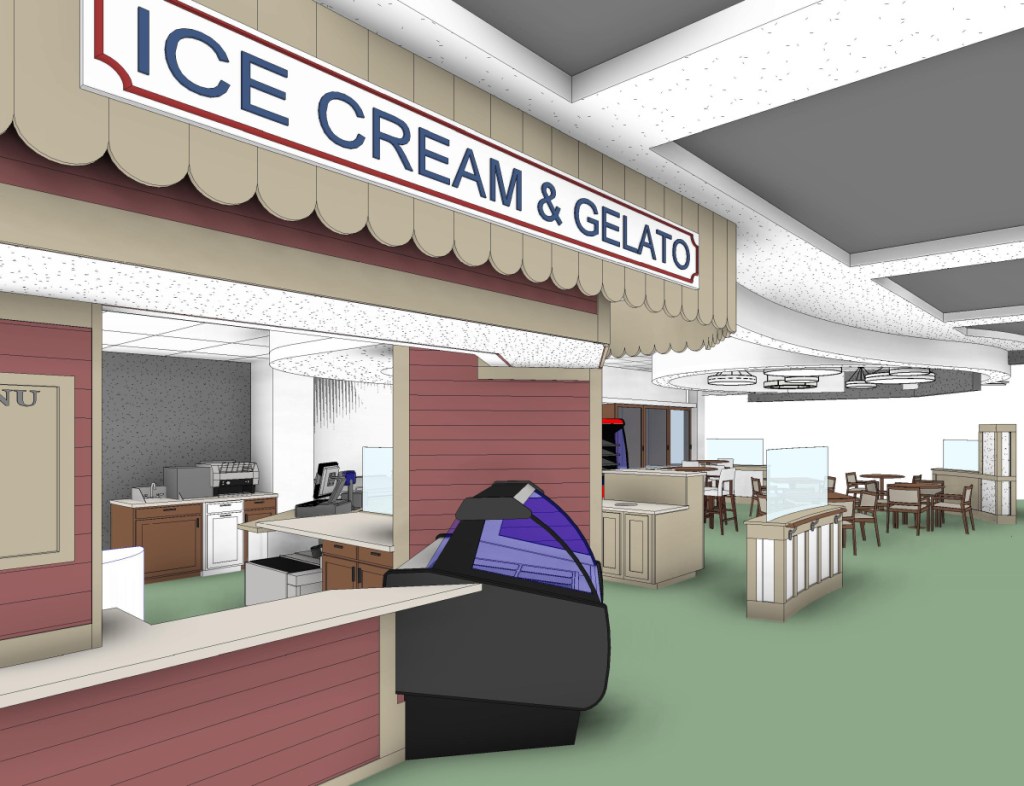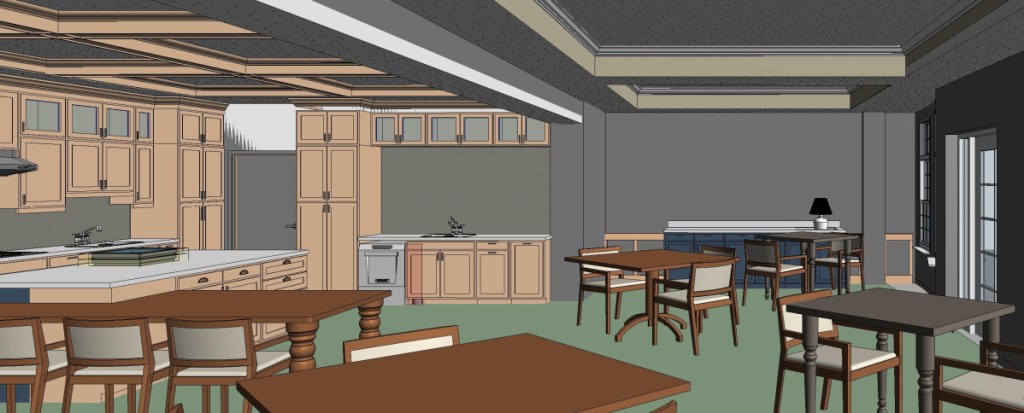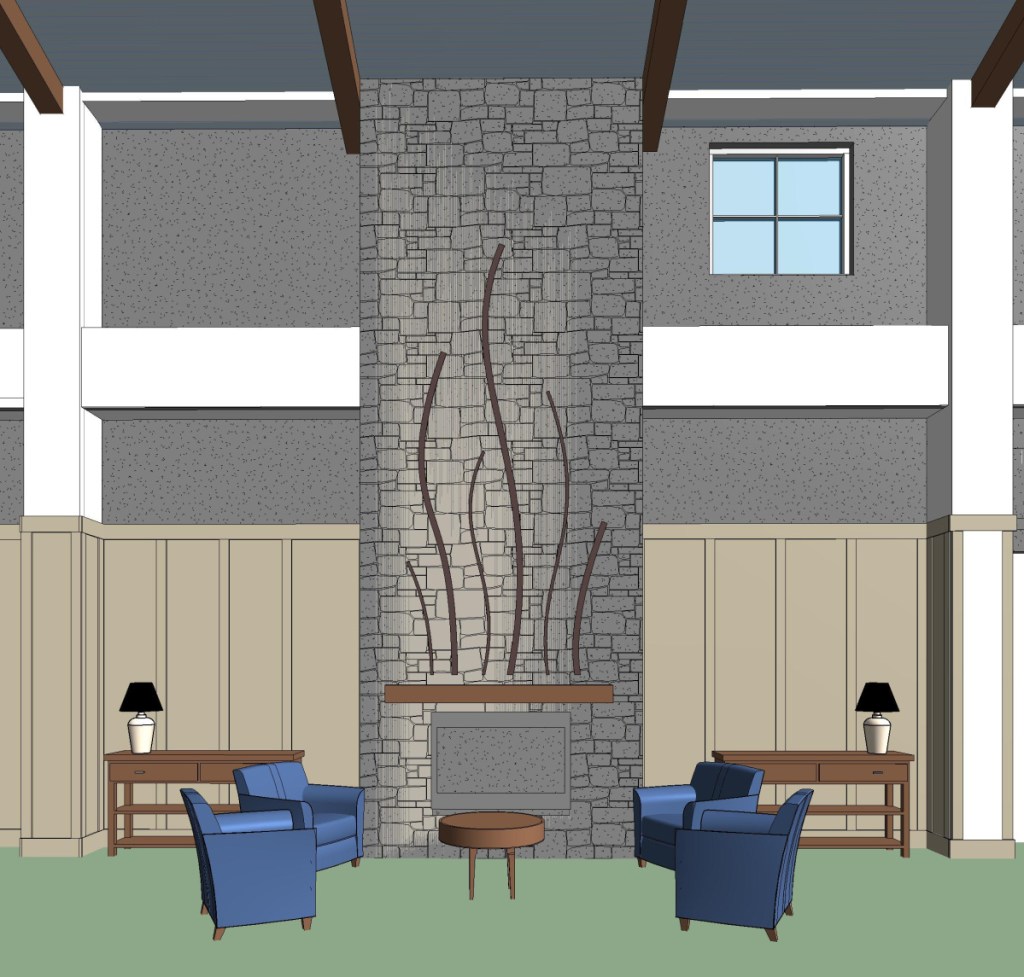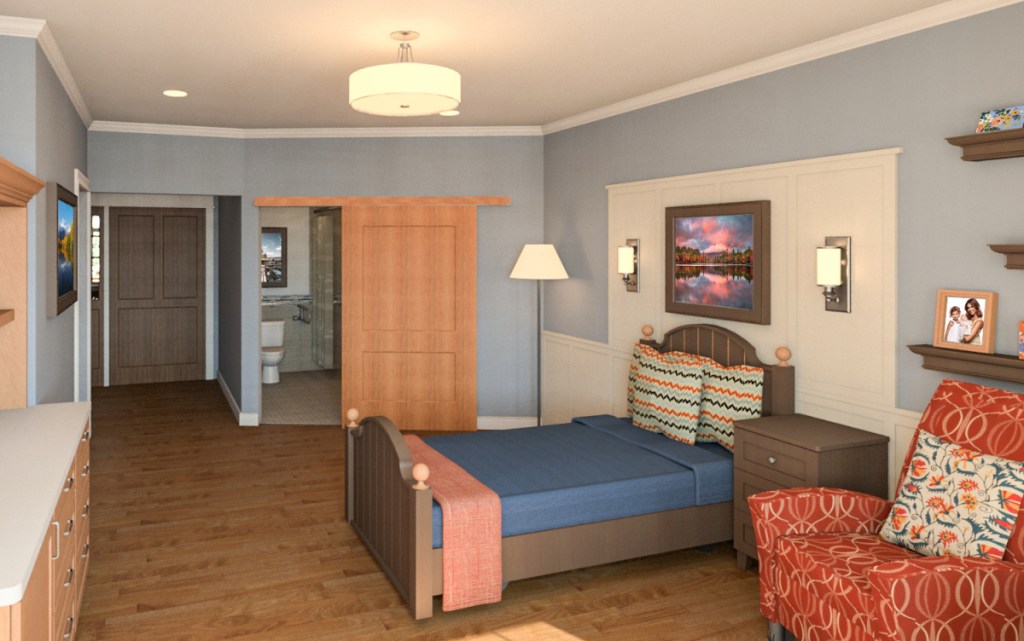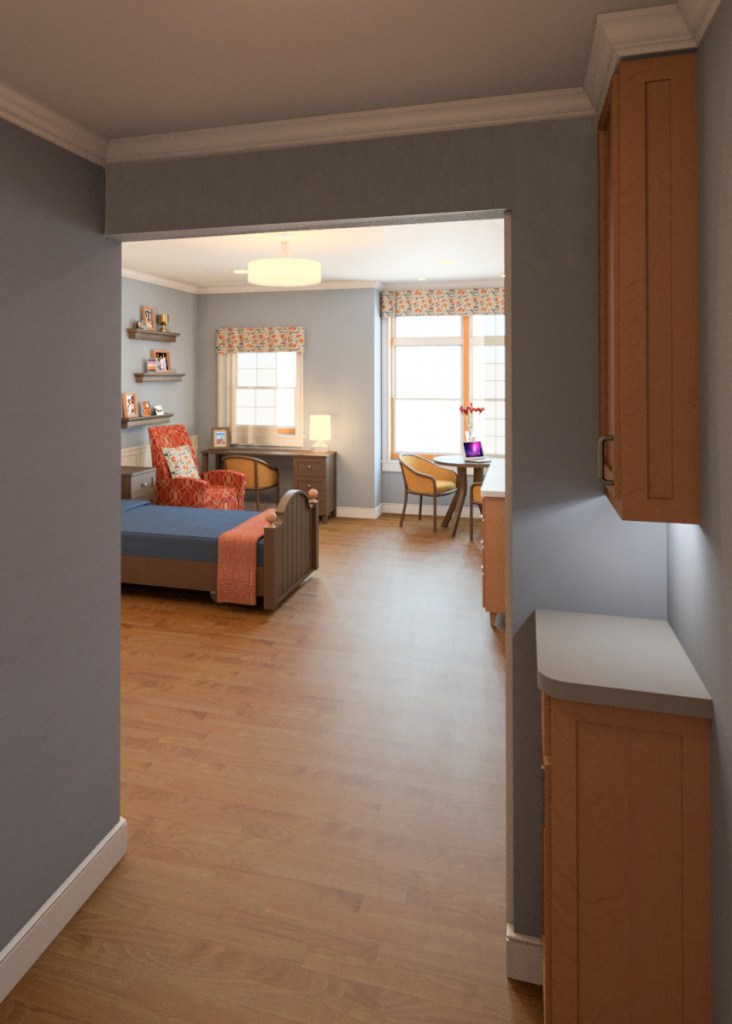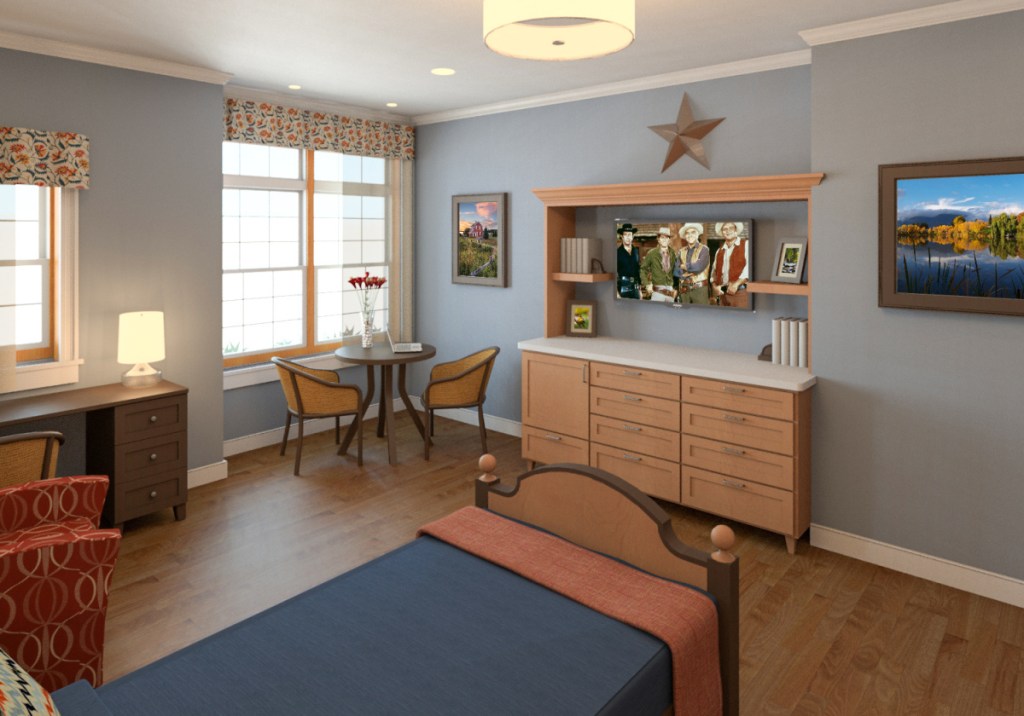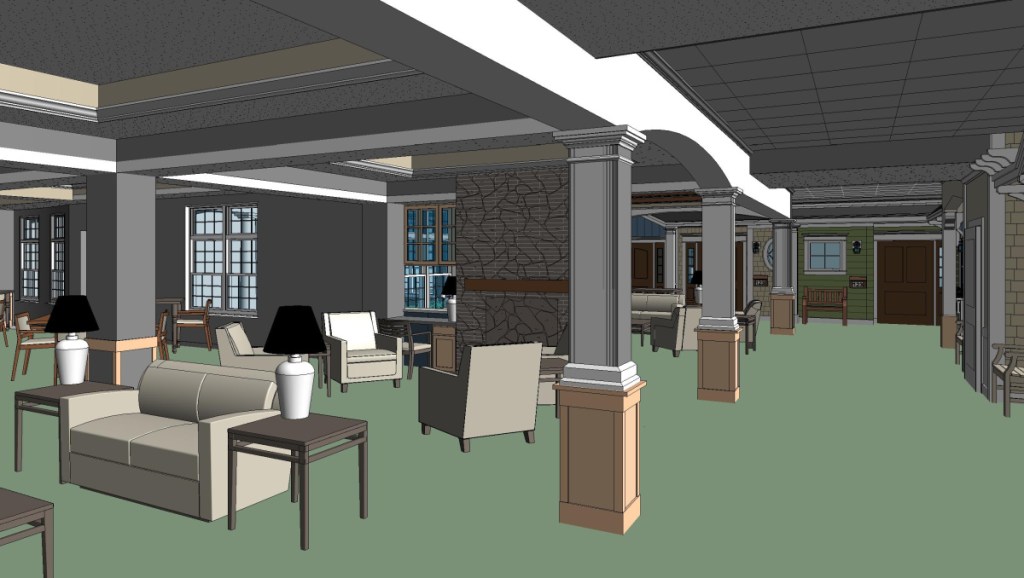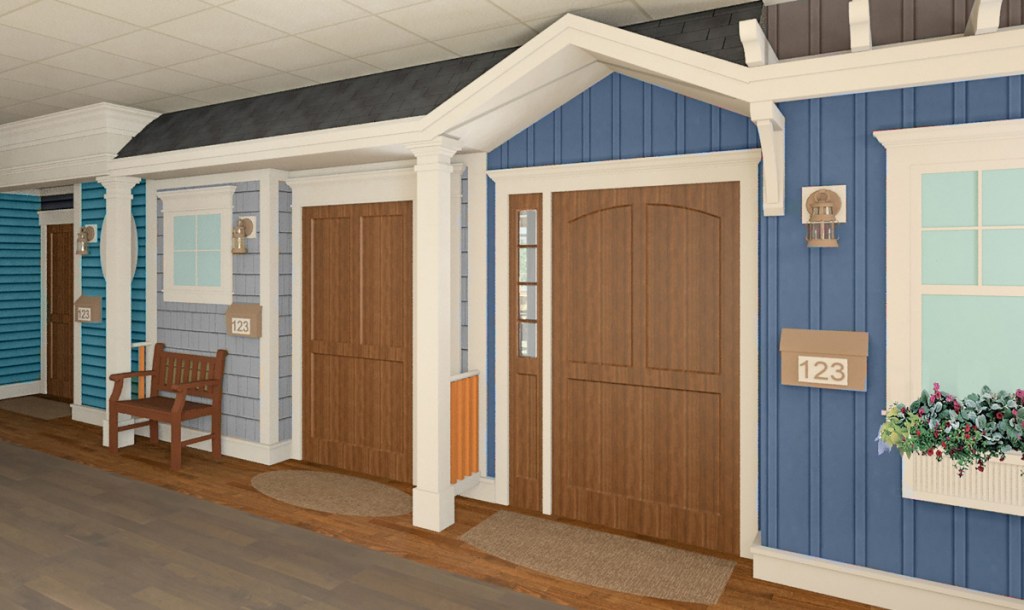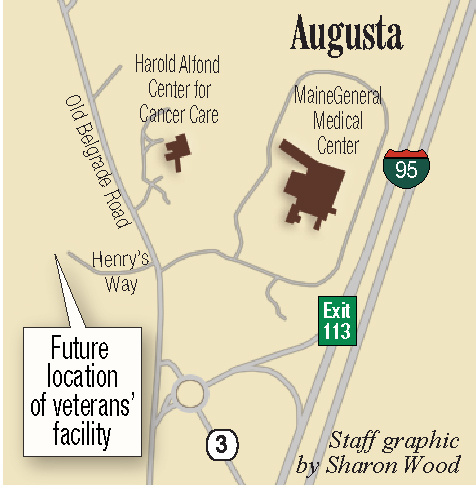AUGUSTA — Work has begun on what Maine Veterans’ Homes officials say will be the first of its kind for veterans in Maine, a 138-bed, state-of-the-art residential care facility based around a model meant to feel more like a home and less like an institution.
The $91 million facility is expected to replace the nonprofit corporation’s existing, 150-bed nursing home facility on Cony Road in Augusta. Maine Veterans’ Homes’ roughly 225 employees in Augusta will move to the new facility, and officials anticipate adding another dozen or so jobs there when it opens in 2021.
The 179,000-square-foot facility will have four two-story buildings, including three residential housing buildings each built around the “small home” model, with private bedrooms and bathrooms for each resident. The project will have clusters of 10, 12, or 15 private rooms centered around shared public spaces, such as dining and living rooms and a common kitchen staff will use to prepare meals for residents.
Kelley Kash, chief executive officer of Maine Veterans’ Homes, said when it’s done, it will be the first residential care facility in Maine built entirely in the small house model and represents the future of Maine Veterans’ Homes’ residential facilities for veterans.
“We’re thrilled,” Kash said Monday. “We’ve been pursuing this for five years now, and what we can do for our veterans is really provide them a state-of-the-art, home-like atmosphere.”
The complex of buildings will be built on 44 acres off Henry’s Way across Old Belgrade Road from MaineGeneral Medical Center, Harold Alfond Center for Cancer Care and Kennebec Pharmacy and Home Care. It is located within an area the city, following the 2013 opening of MaineGeneral’s regional hospital there, designated for medical uses.
“Anytime we expand care for our veterans and update and modernize facilities and care levels, it’s a great thing, not just for Augusta but for the whole state of Maine,” Mayor David Rollins said of the project. “And from a planning standpoint, we look at that quadrant of the city as the most able to be developed.”
Contractors working with Pittsfield-based general contractor Cianbro and Wisconsin-based VJS, a firm Kash said has experience building in the small home model, began unloading equipment at the site Monday and will likely start clearing trees on the site this week.
Construction costs have escalated since the project, which was approved by the Augusta Planning Board in 2017, was first proposed, then at a projected cost of around $77 million.
Kash said construction costs have increased by about 18 percent a year, and now the project is expected to cost about $91 million. A $49 million federal grant will cover a bit more than half the cost, with the rest to be borrowed or come from Maine Veterans’ Homes’ capital reserves.
The new facility will be somewhat smaller — by a dozen beds — than the existing Maine Veteran’s Homes nursing home in Augusta.
Rollins said he’s concerned about that and said officials who built Riverview Psychiatric Facility in Augusta learned, after it was built, that it should have built with more beds for patients. He said there seems to be substantial demand for care facilities for veterans, and as his generation ages, the many veterans in that generation will be in need of an increasing level of care.
However, Kash and Deb Fournier, chief operations officer for Maine Veterans’ Homes, said a study the nonprofit corporation had done in 2014, looking at veteran populations in Maine out to 2040, indicated 138 beds would be enough.
The current facility in Augusta is at 94 percent of its capacity now.
Fournier said before designing the complex, officials interviewed residents and their family members about what they would want in a new facility. She said the number one answer, by far, was private rooms with private baths. They also said they wanted safe access to the outdoors, to be able to interact with the community and space to be with their families.
She said studies have shown residential care facilities that are more home-like yield better results than a more traditional, institutional setting.
Residents will have access to outdoor amenities, including a pond where they can fish, something residents specifically asked about.
The central building on the site will house centralized services and serve as a community center. It will also feature a “town center” where residents can visit a barber or beauty shop, ice cream shop and bistro, a movie theater, a veterans’ club and a children’s play area. Each of the services in the town center will be offered in a facade mimicking a storefront in a village.
“It’s really meant to be a safe destination for our residents to go to, where they can interact with their families and the community,” Fournier said.
Services there will include a therapy pool and a rehabilitation gymnasium including zero gravity and virtual reality equipment.
The levels of care provided will remain similar to those of the current facility. They include space for assisted living and longterm care for residents with memory impairment, longterm care patients and transitional care for veterans coming out of the hospital in need of a place for care until they are able to return home.
What will become of Maine Veterans’ Homes current facility, built in 1983 on Cony Road, has not yet been determined, other than the organization does not plan to keep the building.
“We’d love to see that building repurposed for veterans use,” Kash said. “We’re talking to people about ideas.”
Rollins said the property, because it already is a care facility, could potentially be used to provide care for the elderly or perhaps for a drug rehabilitation facility.
Kash said they plan to have an official groundbreaking for the project in April, after which it should take about 22 months to build, with completion expected around December 2020 and an opening planned in early 2021.
Keith Edwards — 621-5647
Send questions/comments to the editors.


